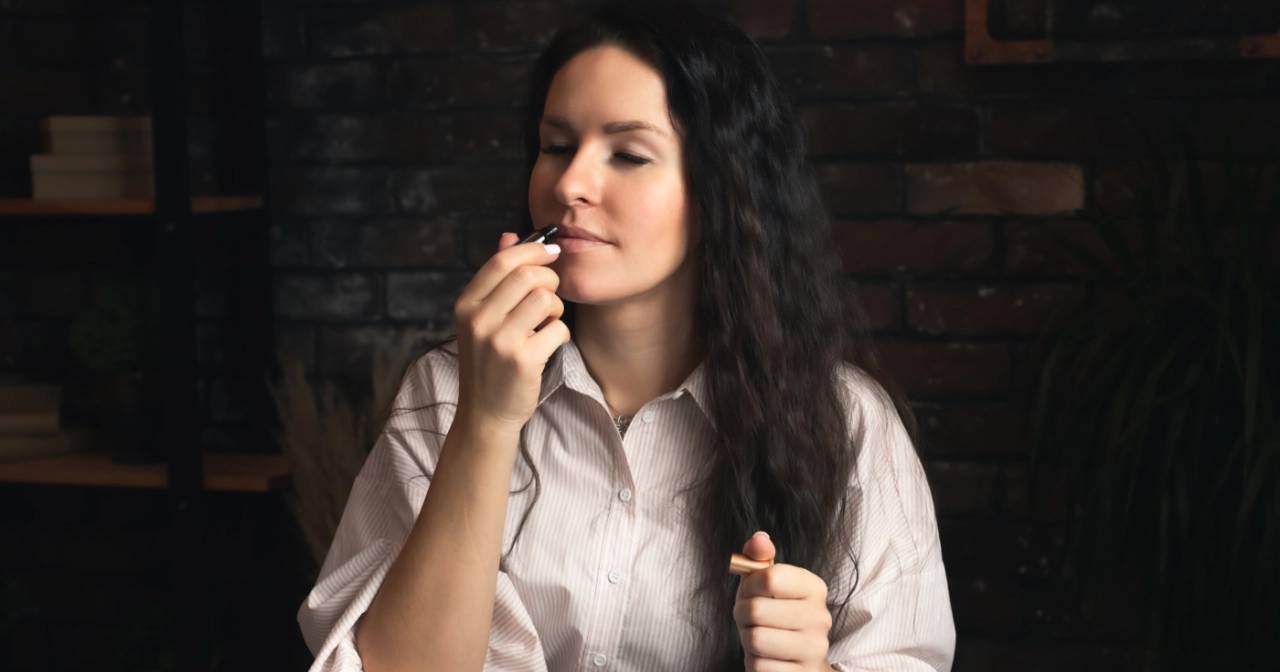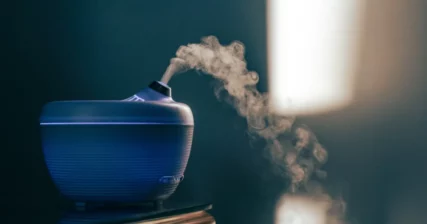Listen on: Apple Podcasts | Spotify
“Inhalation aromatherapy using the damask rose (rose essential oil) was effective in reducing state anxiety and improving sleep quality among OR (operating room) personnel during the COVID-19 pandemic.”
That’s the conclusion of an October 2021 study that looked at the effects of rose essential oil inhalation on sleep and feelings of anxiety. The study adds to the volume of scientific support for essential oils.
Rose Essential Oil
The new study’s authors recognized that previous studies found that rose essential oil lowered feelings of anxiety caused by:
- labor
- hemodialysis
- burn dressing
- surgery
- menstruation
Others found it improved sleep in:
- patients with cancer
- those hospitalized in cardiac care units
- patients undergoing hemodialysis
Sleep deprivation can contribute to increased anxiety, and anxiety may reduce sleep quality, creating a cycle of anxiety and poor sleep. This led the researchers to studying the effect of the oil on both issues.
They chose a specific study population known to deal with a lot of stress and poor sleep: emergency room personnel.
Study Design
Researchers assigned 40 participants to the treatment group and 40 to a control group, all of whom were emergency room personnel.
The researchers put two drops of damask rose oil on a cotton swab and asked the treatment group participants to hold it 5 cm from their noses while breathing normally for 10 minutes. The researchers used paraffin oil for the placebo group. They completed this aromatherapy session at the beginning of their shifts.
At night, the participants put five drops of either rose essential oil or the paraffin oil on an absorbent 10×10 cm cloth and pinned it to their pillows each night for 30 consecutive nights.
This created a consistent aromatherapy method for all participants. In my opinion, a diffuser would have been easier, but would have probably added to the cost of the research significantly.
Findings
Compared to the control group, those using rose essential oil experienced a greater reduction in anxiety. Interestingly, their levels decreased more over the course of the study.
Sleep quality also improved in the rose oil group compared to the placebo group.
The study authors wrote:
…it seems that inhaling damask rose aroma increases parasympathetic activity and reduces sympathetic activity. In healthy adults, the inhalation of damask rose caused a 40% and a 30% decrease in sympathetic activity and adrenaline concentration, respectively. Moreover, it seems that the inhalation of damask rose
Mahdood B, et al. Effects of Inhalation Aromatherapy With Rosa damascena (Damask Rose) on the State Anxiety and Sleep Quality of Operating Room Personnel During the COVID-19 Pandemic: A Randomized Controlled Trial
oil can directly affect the stress system activity by glucocorticoid receptor resistance and cognitive function. Likewise, it was hypothesized that aromatherapy with damask rose can improve sleep quality by reducing anxiety. Similarly, it seems that damask rose aromatherapy can alleviate sleep disorders by the reduction of pain severity, as two meta-analyses indicated the analgesic effects of this intervention and pain is a risk factor for sleep disorders.
My Comments
Rose essential oil is one of the more underrated essential oils available. In part, this is due to its cost. It takes a lot of rose petals to produce a single bottle of oil. However, rose is a very potent oil, so you’d use less than you would for some other oils such as lavender or tangerine.
Although there’s a significant amount of research supporting the aromatherapy benefits of rose essential oil, most people remain unaware of them. Part of the reason is that essential oils available for purchase never have aromatherapy-related health claims connected to their marketing. The FTC and FDA won’t allow it.
Health claims like “supports sleep” or “helps relieve occasional feelings of anxiety” are only allowed on products you take internally. If a product is marketed for inhalation, it can only boast claims such as “smells wonderful” or “supports good mood.” Pretty much everything else is off limits, no matter what the research shows.
The findings in this study and others like it show that inhalation of certain essential oils significantly improved mood, sleep, stress levels, and more. Hopefully, one day FTC and FDA regulations will allow essential oils companies to promote the health benefits of their products that research has already proven. Until then, consumers are left to connect the dots, buy, and diffuse or inhale the essential oils on their own.

Feel Better Fast. Guaranteed.
Energy+, EDGE, and MentaBiotics make up the Happy Juice supplement stack, with ingredients clinically proven to:
- decrease anxiousness scores by 55%
- decrease irritability scores by 60%
- decrease fatigue by 64%
- decrease anger 54%
- decrease tension by 45%
- decrease confusion by 43%
- decrease overall distress by 49%
- increase good bacteria by 70%
- decrease negative mood by 105%
- increase positive mood by 211%



